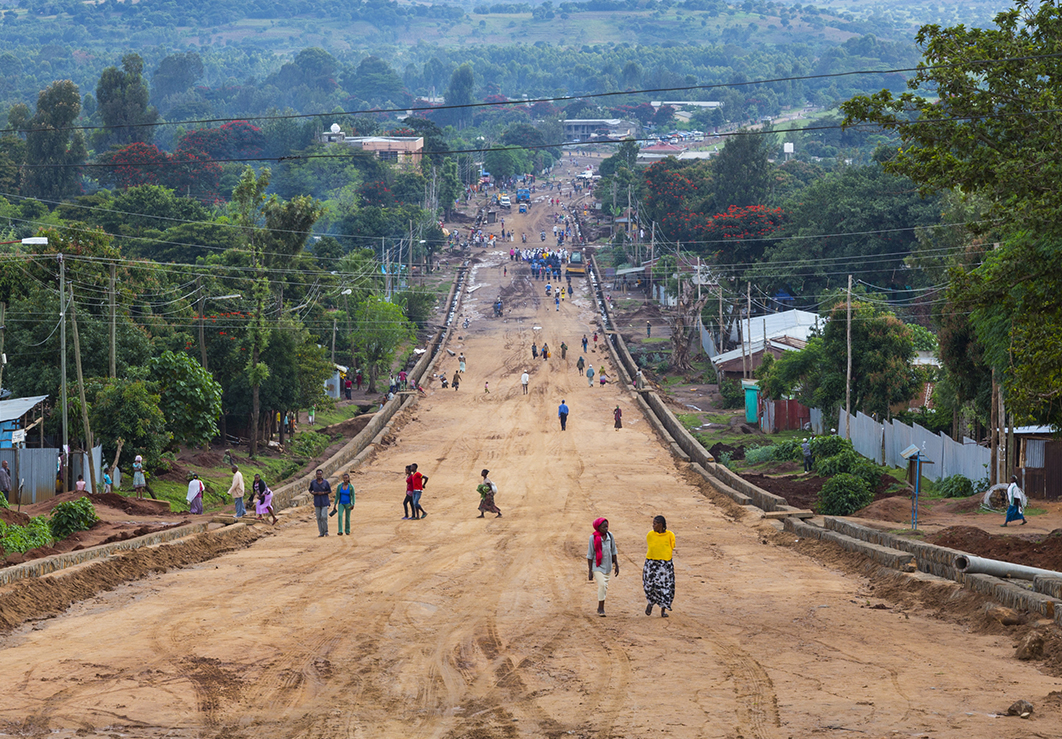Africa
The world's second-largest and second-most-populous continent
The world's second-largest and second-most-populous continent
Africa is the world's second-largest and second-most-populous continent, which has about 30.3 million km2. It covers 6% of Earth's total surface area and 20% of its total land area. With 1.3 billion people as of 2018, it accounts for about 16% of the world's human population.
By most estimates, well over a thousand languages (UNESCO has estimated around two thousand) are spoken in Africa. Most are of African origin, though some are of European or Asian origin. Africa is the most multilingual continent in the world, and it is not rare for individuals to fluently speak not only multiple African languages, but one or more European ones as well.
Following the end of colonialism, nearly all African countries adopted official languages that originated outside the continent, although several countries also granted legal recognition to indigenous languages (such as Swahili, Yoruba, Igbo and Hausa). In numerous countries, English and French (see African French) are used for communication in the public sphere such as government, commerce, education and the media. Arabic, Portuguese, Afrikaans and Spanish are examples of languages that trace their origin to outside of Africa, and that are used by millions of Africans today, both in the public and private spheres. Italian is spoken by some in former Italian colonies in Africa. German is spoken in Namibia, as it was a former German protectorate.
Religious freedom has increased over much of Africa in recent decades.
Religious freedom has increased over much of Africa in recent decades. Religion is vitally important in Africa - it is more significant than nationality or ethnicity in how Africans identify themselves. Religious freedom has increased over much of Africa in recent decades, but here are restrictions in North Africa and in some other Muslim-majority countries. Persecution of varying intensity is present in a number of nations: Morocco, Mauritania, Algeria, Tunisia, Libya, Egypt, Sudan, Somalia, Djibouti, Eritrea, Nigeria, Tanzania and Comoros. The intensity of the threat to Christians in Somalia, Eritrea and northern Nigeria is particularly terrible.

Theoretical and practical learning to encourage the application of scholarship.
Africa Christianity has established itself as a truly potent force, both on the continent and even on a global level. The colonial past is fading and a new level of confidence, dynamism, vision and maturity is evident. In many countries, the Church has established itself as the only effective social organization that can bring reconciliation among ethnic groups and cope with the many economic, health and education challenges in collapsing societies. Challenges the Church must address.
Theoretical and practical learning to encourage the application of scholarship.
Christianity has grown to become the religion of almost half of Africa’s population, and nearly two-thirds of sub-Saharan Africa. From 1900 to 2000, Christian number grew from 9.1% of the population to 48.8% and from 7.5 million to 504 million. In 1900, evangelicals numbered 1.6 million (1.5%), but in 2010 they were 182 million (17.7%). This is nearly as much as all evangelicals in the Americas combined and is the largest evangelical population of any continent.
Theoretical and practical learning to encourage the application of scholarship.
Africa has 13 of the world’s 20 least-evangelized countries by percentage. There are many clusters of unreached people in Africa. The vast majority are Muslims of varying degrees of commitment and orthodox. Reaching them will be a great challenge in terms of spiritual opposition, cultural learning and effective mission strategies.
Mandryk, Jason. Operation World. 7th ed. Colorado Springs, CO: Biblica Publishing, 2010.
Wikipedia, Africa,https://en.wikipedia.org/wiki/Africa. Retrieved April 10, 2020.
Overcome the barriers in every field of mission